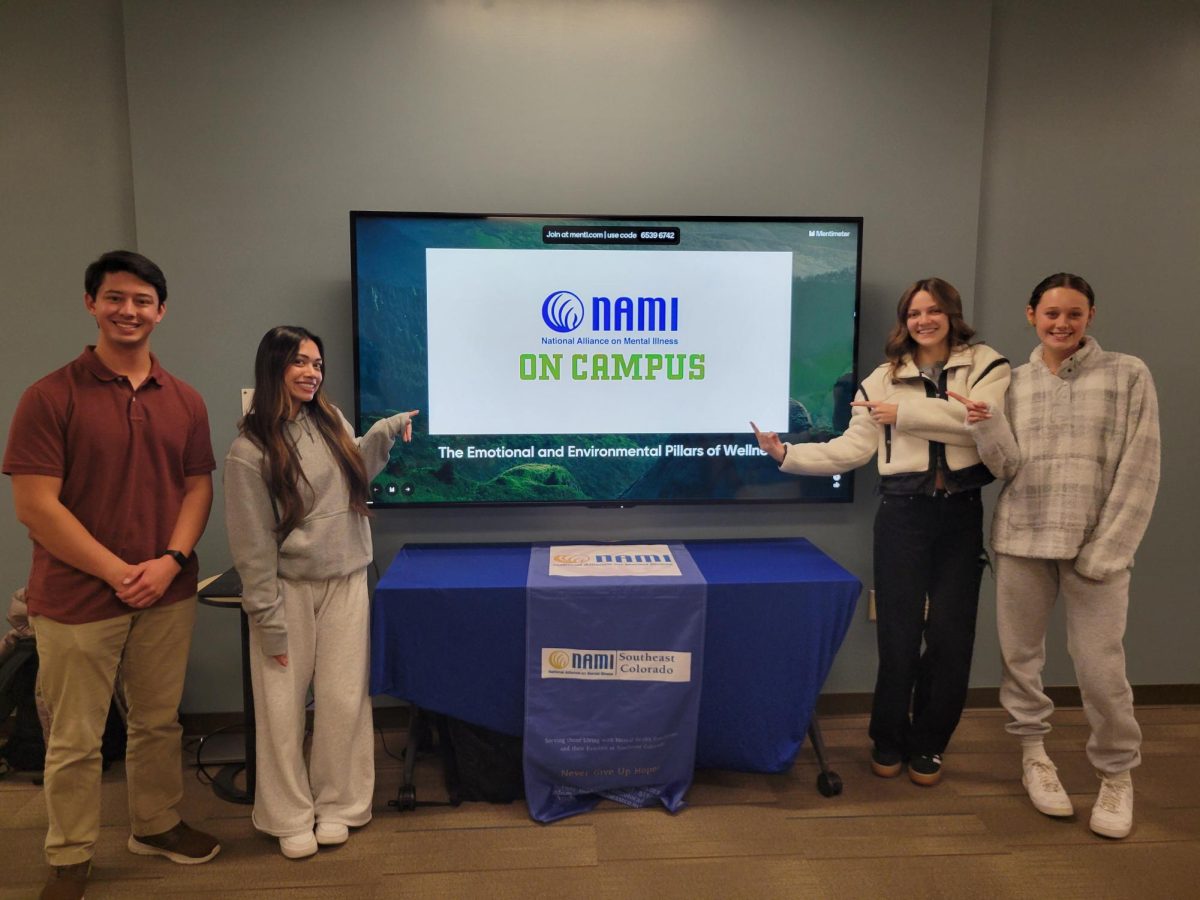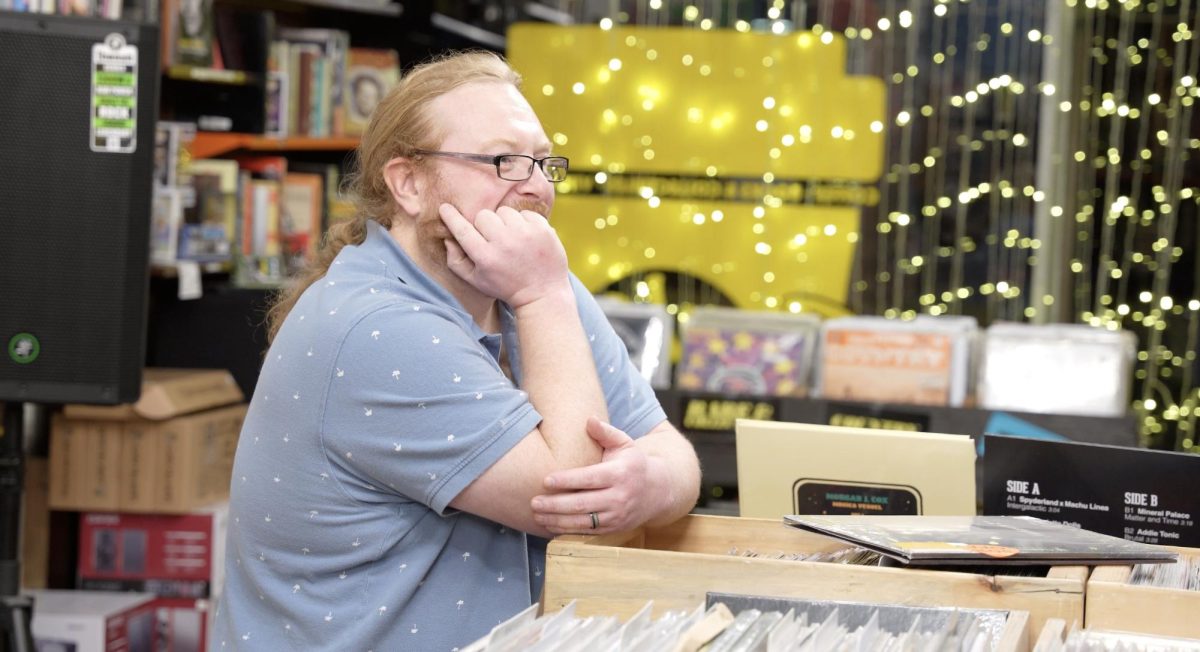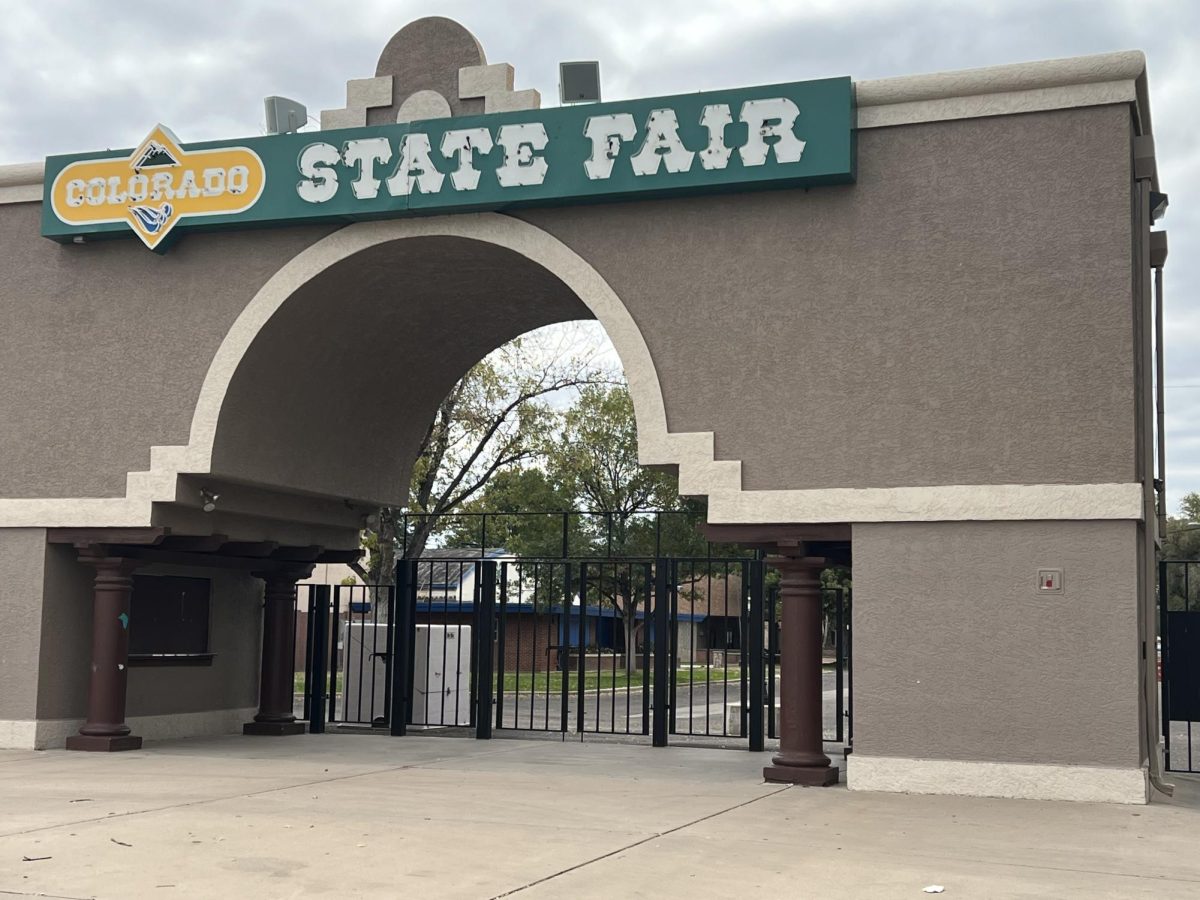![hispanic days geno_027[2] Virginia Santistevan, Betty Duran and Delores Padilla, Members of the Geniological Society of Hispanic America. photo by Tina Marie Rivera](https://csupueblotoday.com/wp-content/uploads/2009/10/hispanic-days-geno_0272.jpg)
“I love talking about this stuff and networking with people, and networking is what this event is all about,” Rivera said as students gathered around a family photo display of her ancestors
Rivera’s photo’s were among the exhibits on display at the Thursday, Oct. 1 event which explored Latin American cultures from various countries. Held in the Occhiato University Center ballroom, the event, part of Hispanic Heritage Month, celebrated the Hispanic-Latino experience and embraced the federally recognized holiday, she said.
“The title, ‘The Other Latinos,’ means ‘Latinos from the whole continent of America,’” Rivera said. “Latinos come from all the America’s and students got a taste of these cultures.”
Assistant Prof. of history and Chicano Studies at CSU-Pueblo, Fawn-Amber Montoya, said this event offers an experience students can’t get in a classroom. About 35 students got to sample food and talk with people whose ancestors originate from Latin American countries, she said.
Montoya said the artifacts brought the Latin experience to students. Yellowed news clippings, faded black and white family photos, porcelain dolls and hand-crafted pottery covered the display tables. Magazine collages illustrated the dance, food and music of Ecuador, Peru and Puerto Rico.
![Hispanic days geno_022[2] part of the display at the event. photo by](https://csupueblotoday.com/wp-content/uploads/2009/10/Hispanic-days-geno_0222.jpg)
Rivera said students asked questions and shared stories about their own ancestry. She said students were amazed to learn she and her mom are members of the Genealogical Society of Hispanic America and that Rivera’s mom writes articles for the GSHA. Rivera said her mom plans to visit Spain next year to research her family tree. Interacting with students was the best part of the event, Rivera said.
“I hope students learn that countries of both North and South America are inclusive with Latinos, Hispanics and Spaniards, and that we’re part of the Spanish-based, Hispanic-speaking culture,” Rivera said.
Betty Duran is a volunteer worker with the Southeastern Colorado Heritage Center and Museums’ Legacy Trunk Outreach Program. She said the program boasts 13 trunks, each packed with historical items which give students a first-hand glimpse into the Hispanic Latino experience According to Duran, the Spanish History and Culture Trunk contains information about art, architecture, dance, food, games, money, music and weavings, as well as photos illustrating the migration of Spanish people to the new world.
The Archaeology Trunk holds historic artifacts and information on pottery and stone tools, she said, while quilts have a home in the American Quilt Trunk. The 1921 Pueblo Flood Trunk contains news clippings about the waters that destroyed portions of the city, she added.
“Students touch our past when they hold these items in their hands,” said Duran as she picked up a white ceramic bowl from the display table.
Duran said the Southeastern Colorado Heritage Center and Museum is a cooperative of 15 local organizations that represent Pueblo’s history, archaeology and Hispanic genealogy, and preserves and promotes the rich heritage of Southeastern Colorado. Educating the public through this program is one of the goals of the Southeastern Colorado Heritage Center and Museum, she said.
“More people need to attend these events because they it offer a hands-on experience to our past,” Duran said.
Montoya said she hopes more students take advantage of Hispanic Heritage Month, and that they walk away with an appreciation for the cultures on exhibit. Students said they liked what the event offered the public:
Elizabeth Munoz Ramirez, 26, a junior majoring in Spanish, said, “This event gave me the opportunity to learn more about my Hispanic heritage.”
Jeff Bazanele, 20, a freshman majoring in Spanish and biology, said, “I wanted to see what this exhibition offered, and it is everything I expected it to be.”
Hunter Tate, 25, a freshman with an undeclared major, added, “It’s interesting learning about the various cultures.”
![Hispanic Days Geno_021[2] The display at the event. photo by](https://csupueblotoday.com/wp-content/uploads/2009/10/Hispanic-Days-Geno_0212.jpg)







